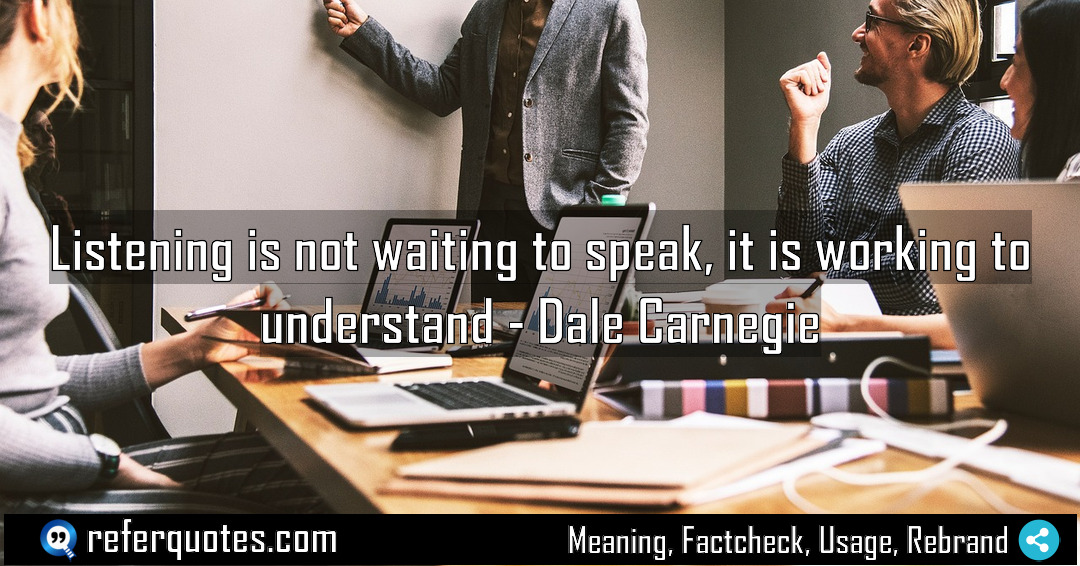You know, “Listening is not waiting to speak” is one of those concepts that completely reframes how you interact with people. It’s not just about being quiet; it’s an active, almost athletic process of truly grasping what someone is saying. Once you start practicing this, you’ll notice a dramatic shift in the quality of your conversations and relationships.
Share Image Quote:Table of Contents
Meaning
At its heart, this quote means that real listening is an act of service, not a strategic pause. You’re not just holding your breath until it’s your turn to talk; you’re actively laboring to step into the other person’s world and see things from their perspective.
Explanation
Let me break this down a bit. The “waiting to speak” part—we’ve all been there, right? Your mind is racing, formulating your response, your counter-argument, your brilliant point. You’re physically present but mentally miles away, already crafting your next monologue. It’s a passive, self-centered state.
But “working to understand”? That’s the game-changer. That’s where the magic happens. This is the active part. It’s the mental effort of silencing your own inner dialogue. It’s asking clarifying questions. It’s paying attention to their body language and tone. You’re not just hearing words; you’re processing intent and emotion. You’re building a bridge of comprehension. It’s work, but it’s the most rewarding work you can do in a conversation.
Quote Summary
| Context | Attributes |
|---|---|
| Original Language | English (3668) |
| Category | Skill (416) |
| Topics | listening (91), understanding (119) |
| Literary Style | concise (408) |
| Emotion / Mood | calm (491) |
| Overall Quote Score | 69 (33) |
Origin & Factcheck
This wisdom comes directly from the Dale Carnegie Training organization and is a central tenet in their 2009 book, The 5 Essential People Skills. While the core philosophy of empathetic listening is pure Carnegie—stemming from his 1936 classic How to Win Friends and Influence People—this specific, powerful phrasing is from the modern text. You’ll sometimes see it misattributed to other thinkers, but its home is firmly in the Carnegie canon.
Attribution Summary
| Context | Attributes |
|---|---|
| Author | Dale Carnegie (408) |
| Source Type | Book (4032) |
| Source/Book Name | The 5 Essential People Skills: How to Assert Yourself, Listen to Others, and Resolve Conflicts (71) |
| Origin Timeperiod | 21st Century (1892) |
| Original Language | English (3668) |
| Authenticity | Verified (4032) |
Author Bio
Dale Carnegie(1888), an American writer received worldwide recognition for his influential books on relationship, leadership, and public speaking. His books and courses focus on human relations, and self confidence as the foundation for success. Among his timeless classics, the Dale Carnegie book list includes How to Win Friends and Influence People is the most influential which inspires millions even today for professional growth.
Official Website |Facebook | X | Instagram | YouTube |
Where is this quotation located?
| Quotation | Listening is not waiting to speak, it is working to understand |
| Book Details | Publication Year/Date: 2008 ISBN/Unique Identifier: 9781416595489 (ISBN-13), 1416595487 (ISBN-10) Last edition. Number of pages: Common reprints ~256 pages |
| Where is it? | Chapter 2 Listening with Purpose, Unverified – Edition 2008, page range ~19–32 |
